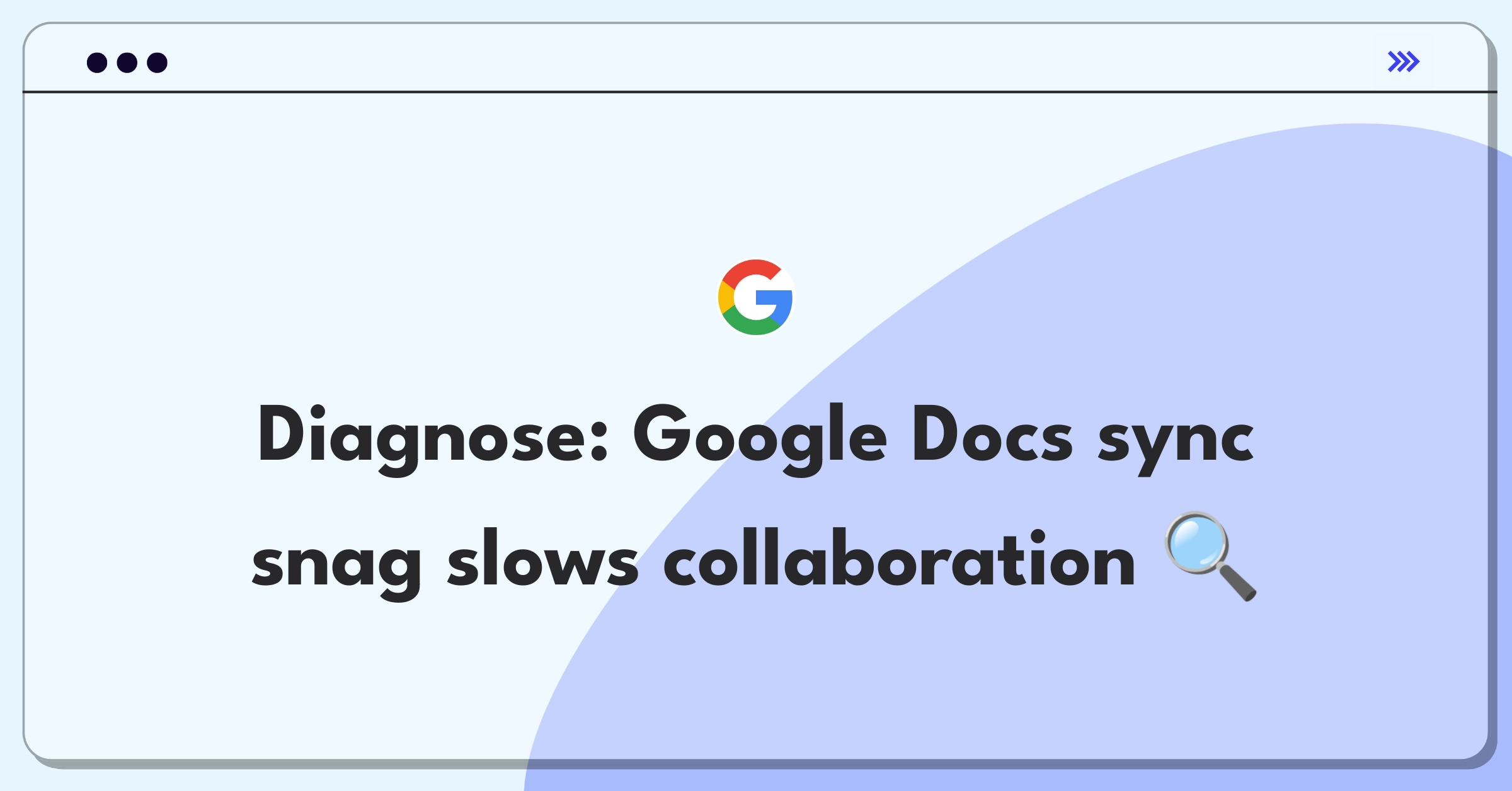Introduction
Google Docs' collaborative features are a cornerstone of its value proposition, making the synchronization issue for formatting changes a critical problem to address. We're facing a situation where 30% of collaborators are not seeing formatting updates in real-time, potentially disrupting workflow and user trust. I'll approach this systematically, focusing on identifying the root cause, validating hypotheses, and developing both immediate and long-term solutions.
Framework overview
This analysis follows a structured approach covering issue identification, hypothesis generation, validation, and solution development.
Step 1
Clarifying Questions (3 minutes)
Why it matters: Identifying patterns could point to specific technical or user-related factors. Expected answer: The issue affects all document types but is more prevalent in larger, more complex documents. Impact on approach: If true, we'd focus on scalability and performance optimization for complex documents.
Why it matters: Recent changes could be directly related to the synchronization issues. Expected answer: A backend update to improve real-time collaboration was deployed two weeks ago. Impact on approach: This would narrow our focus to recent changes and their potential unintended consequences.
Why it matters: This helps distinguish between input and output synchronization issues. Expected answer: The problem primarily affects users viewing changes made by others. Impact on approach: We'd focus more on the distribution of updates rather than the capturing of changes.
Why it matters: Performance degradation could explain synchronization delays. Expected answer: There's been a slight increase in server response times for formatting-related API calls. Impact on approach: We'd prioritize investigating and optimizing these specific API calls and their associated backend processes.
Subscribe to access the full answer
Monthly Plan
The perfect plan for PMs who are in the final leg of their interview preparation
$99 /month
- Access to 8,000+ PM Questions
- 10 AI resume reviews credits
- Access to company guides
- Basic email support
- Access to community Q&A
Yearly Plan
The ultimate plan for aspiring PMs, SPMs and those preparing for big-tech
$99 $33 /month
- Everything in monthly plan
- Priority queue for AI resume review
- Monthly/Weekly newsletters
- Access to premium features
- Priority response to requested question


.png)